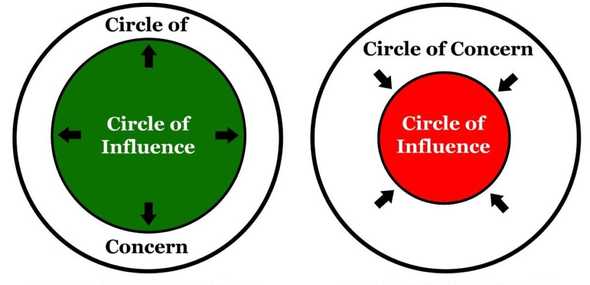Anger Management, 6 Techniques used by Stoics to control anger
...November 24, 2020
Some people have more control over it than others, but in the end, everybody loses it sometimes. You got angry and feel regretful right after. You didn’t mean what you say. The Stoics had techniques to manage this anger. In this article, I’ll explain several
Count to ten
“The greatest remedy for anger is delay.”
— Seneca
This one sounds familiar. Doesn’t it? You have been told by your parents’ dozens of times. If you have kids you will probably say it to them all the time. It doesn’t have to be ten seconds, but make sure you leave a break between the spur of the moment and your response to it. Your emotions always start very intense but ease quickly as well. You only have one opportunity to respond. Choose it wisely!
Are we mad at something or someone?
One thing that Seneca observed was that we don’t get angry at the deed, but at the person that does it.
For example, on the road, someone ignores a red light, because he or she is in a hurry.
If you would have gotten mad only about the situation, you would find out soon enough that you would do the same in that situation, hence no reason to get angry.
Meaning you are angry at the person doing it, which you have no reason for.
So next time you get angry ask yourself the question, what would you do in this situation?
If the answer is:
“I would probably do the same”
Choose to be angry only at the act and not the person.
Differentiate between observations and interpretations
This is one of the principles that Stoics live by. See something that happens as neutral, not good, not bad. Our interpretation determines what it will be.
Suppose someone insults you. In this case, you can conclude someone is talking negatively about you. How you interpret it is up to you. Are you going to let it piss you off? Or do you think:
“This person takes the time to say something about me. I must have made an impression”
I write more about your ability to respond in this article: Control Fear by taking responsibility In there I explain the concept of your circle of influence and control. The way you respond belongs within that circle, the way other people act doesn’t.
What will it change?
” You shouldn’t give circumstances the power to rouse anger, for they don’t care at all”
— Marcus Aurelius
This is something you can think about when counting to ten, as described earlier. We can get really angry at the person talking negatively about us. But it will not change anything about the situation. It will probably make the situation a lot worse. So remember to count to ten!
See the world as one
Another thing Stoics believed is that we as beings are all connected to each other. We are meant to live in groups and form one society.
The example often given is it would be very strange to hurt your own hand and feet, they are part of the body and the sum of those parts is worth more than the individual parts.
You shouldn’t get angry at one person since that individual person is part of the “body”. Meaning don’t hurt your own society, because it will impact yourself as well.
Anger fuels Anger
Read the following quote from Epictetus:
“Every habit and capability is confirmed and grows in its corresponding actions, walking by walking, and running by running … therefore, if you want to do something make a habit of it, if you don’t want to do that, don’t, but make a habit of something else instead. The same principle is at work in our state of mind. When you get angry, you’ve not only experienced that evil, but you’ve also reinforced a bad habit, adding fuel to the fire.”
— Epictetus
Getting angry is something you shouldn’t want for yourself since it doesn’t bring you any good. So not getting angry prevents it from getting a strong habit. Just like practicing running, it will get better over time. Unfortunately, this works the same for habits we don’t want to get better at. Also, keep this one in mind when you are counting to ten
Conclusion
Anger is a very strong emotion, which doesn’t bring you any good and leaves you with things worse than they were before. In this article I shared some Stoic methods to help you get this under control.
I'm fascinated by the power of a strong mindset. I combine this with being a web developer, which keeps me motivated. But how, you may ask? That's what I share on this website. For more information about me personally, check out the about me page: About Me
Are you enjoying this blog and do you want to receive these articles straight into your inbox? Enter your e-mail below and hit the subscribe button!
I won't send you spam and you can unsubscribe at any time


